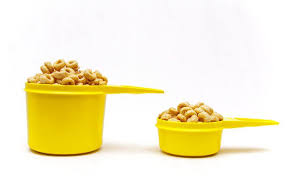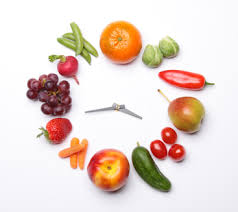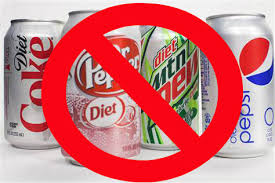
Childhood Obesity is one of the most serious public health challenges of the 21st century. As per WHO going by current trends 70 million children will be obese by 2025.Overweight and obese children are likely to stay obese in adulthood and more likely to develop lifestyle disorders like Diabetes.
India has the second highest number of obese children in the world after China as per the Huffington Post dated June 2017. A three-year long pan-India study by Fortis Hospital’s SRL Laboratories on 17,000 school going children, found that 66 per cent of children in India have abnormally high blood sugar levels causing the cases of type-2 diabetes to spike ten times.
With such serious health issues at such an early stage, most of these children could potentially face irreversible damage to growth, heart, kidney and other vital organs. This is happening primarily because we are feeding our kids the food they shouldn’t be touching and encouraging them to be more sedentary. The two factors combined are a ticking time bomb.
Let’s all consider with an open heart and mind that we have everything at our fingertips to restore our health. It’s all right under our nose. It’s our mouth, and what we put into it! From today forward let’s do some new things. Let’s make some better decisions. Let’s become informed and take our power back. Let’s come to a place where we know that we can live healthy and disease free for many more years. We can fight this together: small changes are the recipe for success!
Learn to disassociate food with emotions
Children often associate hunger with mood swings. If they are feeling low, they eat an ice cream or bite into a chocolate. Parents must talk to their children about their feelings, they should teach them that negative feelings cannot be overcome by eating high-calorie foods.

Reduce Portion Size
Junk food joints like pizza and burger stops have become a hot spot for all children and is a treat or weekend food. Unfortunately, we don’t realise the rate of development of mind and body in children decreases with junk food due to the empty calories it provides. Above all portion sizes at quick service restaurants have grown throughout the years.
Behavioral research shows that environmental cues — such as large plates and big cups — encourage us to eat and drink more than if plates and cups were smaller, so consider scaling back on plate and cup size for everyone in the family.

Provide Small Frequent Meals
Eating frequently can also help keep hunger at bay. Active children may need to eat two or three nutritious snacks in addition to three meals a day. Snacking, like eating frequency, may not be related to obesity. Kids like to snack, and it can be a good way to increase nutrient intake. Just keep the snacks healthy (fruits, veggies, whole grains, nuts and low-fat dairy foods) and keep portion sizes small. Remember, snacks should not be meal replacements.

Make favourite dishes healthier
Some of your favourite recipes can be healthier with a few changes. Add plenty of vegetables, fruits and whole-grain products wherever possible. Use low-fat or non-fat milk or dairy products. Choose lean meats, poultry, fish, lentils and beans for protein. Replace sugar with dates,raisins,figs. Changing the cooking method also helps.

Remove Packaged Food temptations
Do not reward completion of meals with sweet desserts.Treats are okay in moderation, but limiting high-fat and high-sugar or salty food packets which are often addictive, also help your children develop healthy eating habits. Packed cereals, cookies, cakes, chips are fat laden, full of refined sugar and rich in countless chemicals which not only harms the body but also stimulates the brain causing hyperactivity and attention deficit.

Say No to Diet Food or Sweets
Diet foods or sweets often have sugar alcohols( which are low in calories but have adverse side effects on different body parts. Its better to feed normal sweets in limited portions than falling prey to such marketing gimmicks.

Involve Whole Family
Whole family should stay focussed and work as a team to help the child. Parent actions as role models have greater impact on kids rather than just being asked to follow instructions.

Help your kids understand the benefits of being physically active
Help kids stay active
Children and teens should participate in at least 60 minutes of moderate-intensity physical activity most days of the week, and every day if possible. You can set a great example! Start adding physical activity to your own daily routine and encourage your child to join you. Dance, Tag team, Play soccer, skip rope…make it a family routine.
Reduce sedentary time. Although quiet time for reading and homework is fine, limit “screen time” (TV, video games, Internet) to no more than an hour a day.

What to do if your child has diabetes?
Kids who have diabetes don’t need to be on strict diets, but they do need to pay attention to when they eat and what’s on their plates. Why? Because it helps them keep their blood sugar levels in check.
Ideally your child should consume plenty of fruits, vegetables and whole grains. Carbohydrate intake should be consistent. Their diet need not be ‘boring bland food’ and with a few changes, the entire family can move towards a more well-balanced diet.
Keep Track
Keep a record of your child’s carb intake, insulin doses, and blood sugar readings. These numbers can help you to understand if his meal plan is working.
At times understanding what and how much to feed to a diabetic child can be a challenge. Unfortunately, there’s no set formula to tell you how your child’s body will process different foods. But, as time passes, you’ll learn more about how your child’s favourites affect his or her blood sugar, and then you can learn to make up for them. A Nutritionist can help you create a meal plan that fits your child’s health goals, food preferences and lifestyle.We at Nutriguide help parents and the community become more knowledgeable about holistic nutrition.We enable children make healthier choices everyday.Preventing or reversing Childhood Obesity, Diabetes and shaping positive eating behaviour in your fussy toddler or picky teenager.
If you enjoyed this post, we’d be very grateful if you’d help it spread by emailing it to a friend, or sharing it on Twitter or Facebook. Thank you!
Uma Narula is an award winning practising Nutritionist since 10 years.If you have any queries you can email on uma@nutriguide.co.in or call on +91 99676 35556/+32 468 29 79 49.